You begin to sense trouble when the Central Bank of Nigeria (CBN) issues a statement banning the sale of forex to importers of toothpicks and Indian incense. You then sense bigger trouble when the bank follows up by insisting that even the bureaux de change (BDCs) cannot fund 41 “blacklisted” imports. You finally conclude that the trouble is far bigger than you thought when the CBN further declares that even if you earned forex through exports, you cannot use it to import those items. What the CBN has refused to tell you in simple English is that Nigeria is running out of gas. It would take a combination of magic and miracle to refuel this wobbling bus.
Mr. Godwin Emefiele, the CBN governor, has come under fire over his forex “supply containment” policy. The Economist of London recently criticised his methods. One, the newspaper said the CBN should allow the naira to devalue rather than keep the national currency on its feet by curtailing forex supply. Two, it said rather than exclude private jets from official forex supply, government officials should simply be banned from flying in them. Three, it wondered why Nigeria is “banning” imports of rice and sardines when it does not produce enough to feed itself. Four, it said unlike our CBN, central banks usually prop up their currencies when they are worried about inflation.
I think The Economist was working with certain assumptions about Nigeria. It thinks the CBN can ban government officials from flying in jets. It also assumes that rice and sardines imports have been banned by the CBN, but the bank does not have such powers. Meanwhile, the CBN has actually been trying to prop up the naira, depleting the currency reserves by about $5 billion since January, so much so we can now only guarantee six months of imports — compared to 18 months just a couple of years ago. On devaluation, the CBN has, in fact, already done that: our currency has officially lost more than 20% in value since November 2014.
The prescription of floating the naira as advanced by The Economist — so that it can find its real value without official meddling — would be in line with the principles of free market. As it stands, the official rate is $1=N198 while it is $1=N230 in the black market. Since it is market forces that determine the black market rate, the “real value” is evidently N230 or thereabouts. Abolishing the official rate and leaving market forces to sort themselves out is, for all intents and purposes, the best policy in an ideal world. But there will be heavy socio-political consequences for an import-dependent country like Nigeria as prices of goods and services will go gaga.
Advertisement
Devaluation, therefore, is not the ultimate answer. Our problems are bigger than what devaluation can solve. Agreed, it could address some issues. At least, with no official exchange rate, we would stop wasting our reserves trying to defend the naira. Also, chances are that only those who really need forex will buy it since there will be no black market for round-tripping. That will take care of the arbitrage menace. However, devaluation will still not solve the real problem. We export only oil and import everything, including toothpicks. If we were an export-oriented country, devaluation would actually improve our forex earnings and reduce import dependence. But we’re not.
Logically, therefore, our policies must be geared towards domestic manufacturing. Emefiele says the containment of forex supply to importers of the blacklisted products is intended to encourage or protect local industry. I love his optimism, but my sense is that this alone will not solve the problem. It has to be combined with other factors — good transport infrastructure, good regulatory environment, good incentives, stable power, etc — before local industry, the real sector, can really grow. Sadly, while the CBN is empowered to devalue the naira, it is not empowered to provide infrastructure. We know whose responsibility that is.
An economy with a warped structure like ours cannot deploy devaluation or currency-propping alone to get out of jail. Emefiele’s recent actions, in my opinion, were more like “first aid” treatment and a self-defence tactic to protect our foreign reserves in the face of dwindling oil revenue. It is much better than doing nothing. Unfortunately, he can only control forex supply — he cannot control the demand. Since we will continue to import toothpicks and Indian incense, the pressure on forex will only shift to the black market. The naira will, therefore, continue to fall. We are in a total mess and only a miraculous recovery in oil prices can give us some breathing space.
Advertisement
After decades of paying lip service to economic diversification, we are finally paying the price. We never really believed we could get into this mess — despite several reminders of a similar meltdown in 1982-83. Any CBN governor in the circumstances we have found ourselves today will struggle. The CBN is charged with stabilising the exchange rate in a country dependent on crude oil price — which is completely beyond the bank’s control. If oil price rose to $125 per barrel today, there would be enough forex to go round and enough to “protect” the naira. But oil is $50 and we have become helpless, having failed to adequately prepare for days like these.
By just building refineries, which we can do, we will save billions of dollars in forex demand. And by exporting petroleum products, which we can do too, we will earn extra billions of dollars. Imagine that we spend, let’s say, $10 billion on fuel imports yearly. If we stop fuel imports, the $10 billion demand for forex is automatically off the list. Now imagine that we actually start exporting petroleum products, we could earn $5 billion (this is for illustration purposes only). Not only would we be saving $10 billion in forex demand, we would be getting an additional supply of $5 billion! That would help the foreign reserves and the exchange rate better than devaluation.
We have to live with the fact that there is no alternative to diversifying our economy. Produce more, export more and import less. There was a time we banned imported furniture. Those who had the misfortune of investing in local production of furniture must be regretting by now: the federal government suddenly woke up one day and lifted the import ban. Demand for forex to import furniture went back on the roaster. Also, all the reckless import duty waivers being granted for goods that we should be producing at home are harming domestic industry. These things hurt terribly; devaluing or floating the naira will not get anywhere near solving the problem.
By the way, I do not suggest that the CBN should never devalue the naira. Sometimes these things are inevitable. Defending the naira would require robust external reserves to cope with the massive demand for forex. What we have seen in the last six months is a massive drawdown on these reserves just to keep the head of the naira above water. Indeed, if we had $900 billion in our reserves, we can afford to keep the exchange rate at even $1:N1. The CBN would have enough war chest to keep it tight. But, unfortunately, we don’t have such financial energy. Except our situation improves dramatically — by way of higher oil prices — the naira will keep falling.
Advertisement
My point, then, is that it will take more than devaluation by the CBN to clear this mess. The Buhari administration must come up with a comprehensive economic revival plan. Emefiele’s intervention by way of constraining forex supply will, for now, contain the bleeding. It will be good if this policy ends up reducing the importation of toothpick and the like. It will be an even sweet bonus if it succeeds in improving domestic manufacturing and import-substitution. Nevertheless, the policies to diversify the economy must be pursued by the politicians with the same energy they use in pursuing party supremacy. The mission to rescue our economy has never been this urgent.
AND FOUR OTHER THINGS…
AREGBE ON THE CROSS
Of the over 20 states owing salaries, arguably the most highlighted is Osun. Senator Ben Murray Bruce once hilariously offered to donate his allowances to Osun workers. Governor Rauf Aregbesola thinks the media spotlight on him is politically motivated. He traces it to PDP’s inability to win the Osun governorship election in 2014 — which could have provided a leeway for them to win south-west in the 2015 general election. In truth, however, the media celebrated Aregbesola for his achievements. He became the golden fish with no hiding place. The deal is: the bigger the head, the bigger the headache. Inescapable.
LAMIDO AND SONS
Advertisement
Why am I not excited about the ongoing trials of former governors, notably Sule Lamido (and his two sons), by the Economic and Financial Crimes Commission (EFCC)? You would have to pardon my cynicism. In 2007 when President Umaru Musa Yar’Adua came to power, many ex-governors were put on trial. As I write, none of them is in jail. So maybe they were not corrupt, or they had “brilliant” lawyers, or EFCC did not build a strong case, or the judges decided to see no evil. Whatever it is, you cannot but think Nigerian politicians are above the law. Conspiracy.
NO PRISONERS
Advertisement
I’ve been following the vigorous protests by people of Anambra state against the relocation of Boko Haram suspects to Ekwulobia prison in Aguata LGA. I understand their fears. More so, I would rather have a federal project in my community than federal prisoners — certainly not suspected Boko Haram insurgents. Communities that hosted them can tell horrible tales of violent jailbreaks and constant Boko Haram attacks. However, the bigger issue is: for how long will these suspects be awaiting trial? You cannot help wondering what could be the real problem. Is it that there is no enough evidence against them? Questions.
SUNDAY MEDICINE
Advertisement
All is set for the unveiling of Sunday Ogochukwu Oliseh as the Super Eagles’ coach. He is, without doubt, one of the most cerebral Nigerian footballers ever. He comes into this job with a big personality. However, NFF would be making a big mistake to think they have found a more pliant coach than the sacked Stephen Keshi. Oliseh is no less a rebel. Along with coaches Keshi and Amodu Shaibu at the 2002 Afcon, Oliseh, as team captain, led a revolt against the football authorities over poor welfare. He was subsequently dropped from the 2002 World Cup squad. Warning.
Advertisement
3 comments

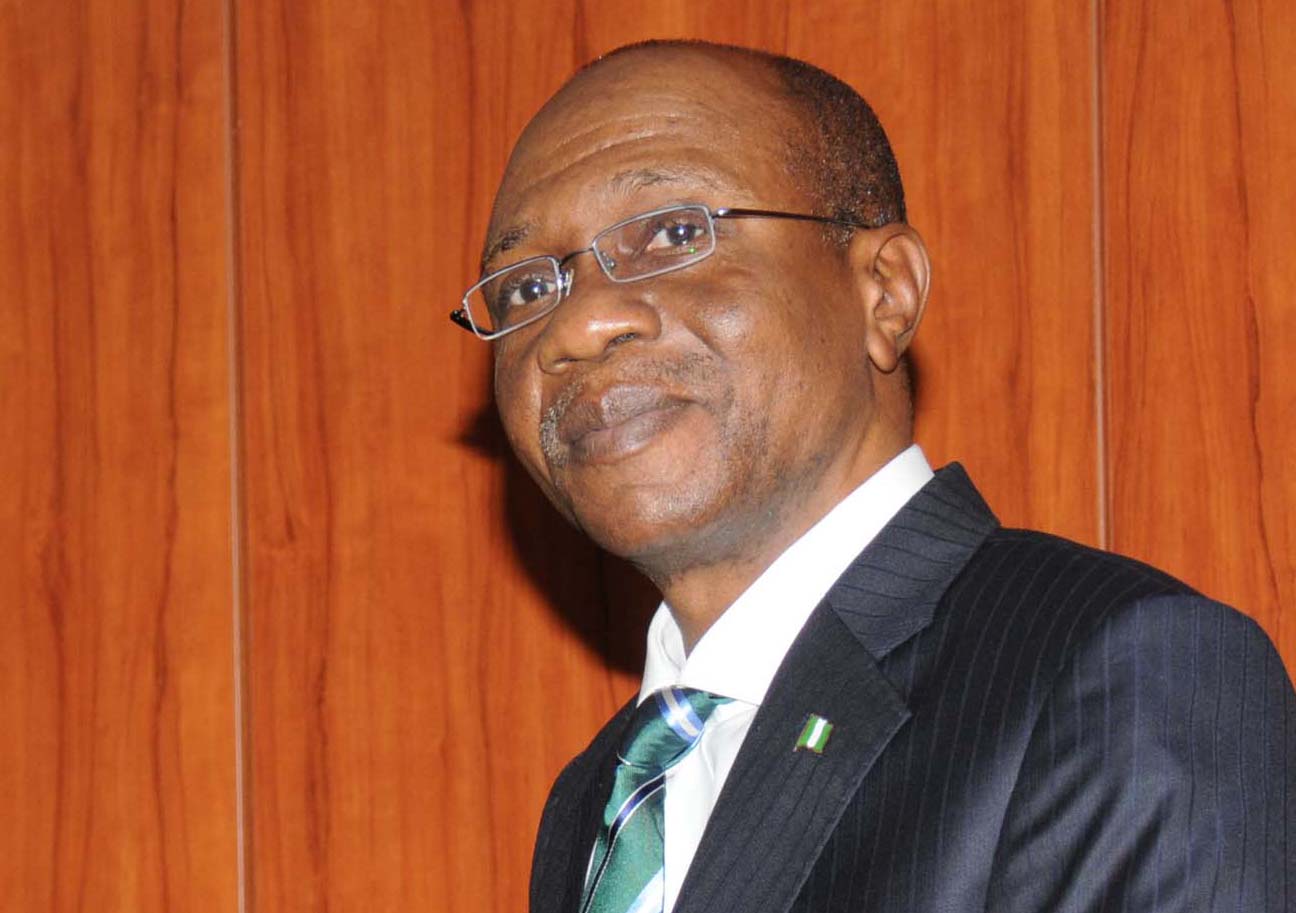
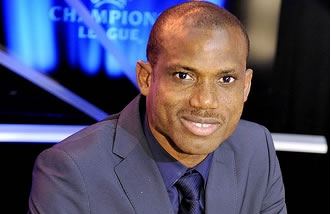
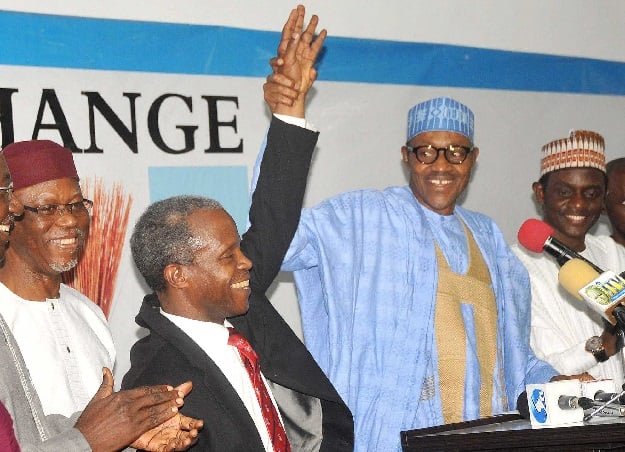
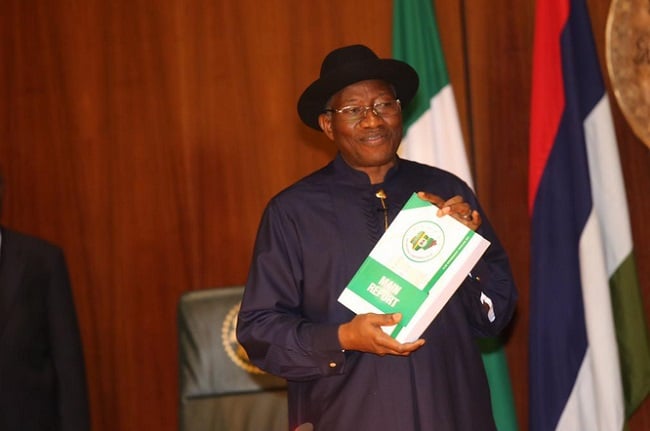
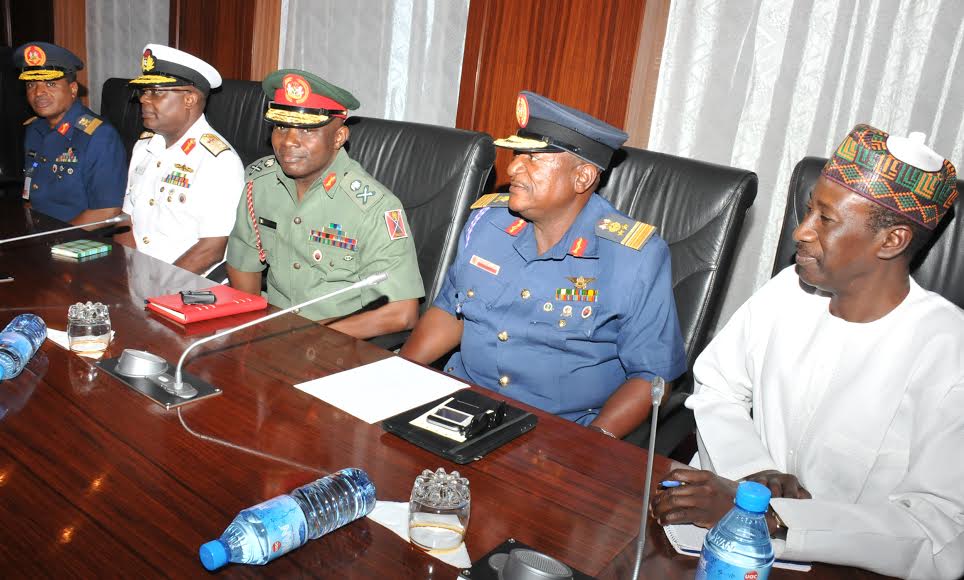
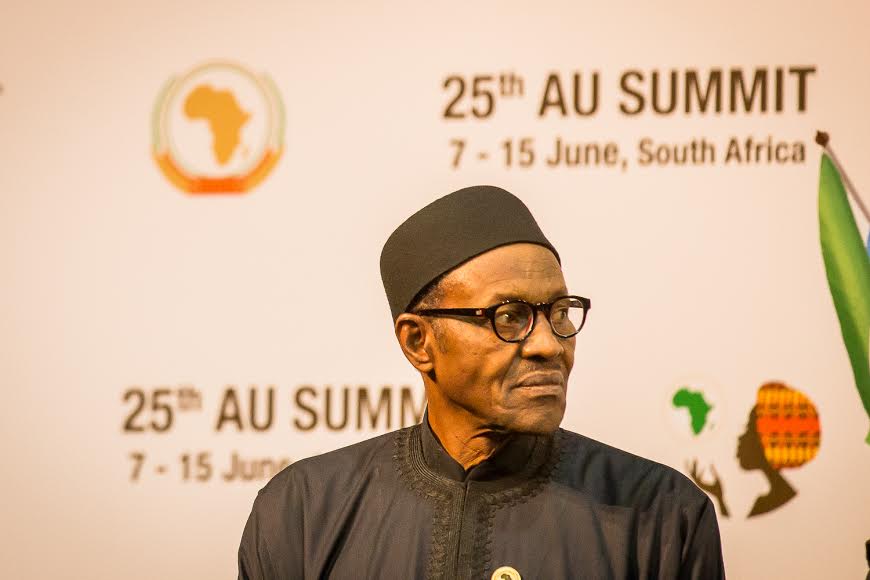
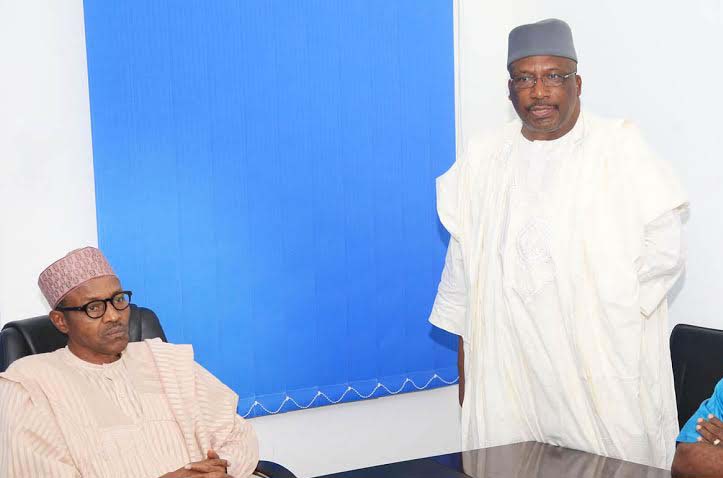
Very sound and reasonable assessment of the state of disrepair of our economy; where we are, where we want to be and what we ought to do to get there.
But where is the political will to bite the bitter pill?
We are in a brown dustbin bag, only production, the enabling environment for it, the infrastructure to support it and nation building zeal will get us out of it.
How competent is Emefiele for this job? I am quite worried as a Nigerian.
Emefiele got this job when SLS was sacked. Did GEJ fill this position with a compliant ‘yes sir’ man?
I have a hunch that Emefiele and team may not be as competent as we might think… forget the embellished CV.
VP Osinbanjo must quickly look into this. I wonder if the presidency is fully on top of what decisions CBN is taking.
Although I salute his courage for bringing this to the forefront of national discourse, but I wish Simon Kolawole would stop presenting an ‘informed’ view and make way for someone like Soludo to review the curent actions of CBN.
Dear Mr. Editor-in-Chief:
I can imagine the trouble average Nigerian go through now to get basic consumer products or essential food items on the table for their household because of the fallen price of oil and the consequent fallen naira. But Nigeria need not be surprised that as a mono-dependent country on oil and gas, any fall in oil and price in the international market can only spell doom for Africa’s largest populated country, which has depended on petrol dollars since the 1970s. Neither is strange that though, with Nigerian’s rich intellectual base, acquired from some of the best educational institutions around the world and from Nigeria’s educations institutions, the country still find it difficult to grasp that any delay from the years past to diversify the national economy, and invest in mechanized agriculture; and across every economic sector of the national economy, and with emphasis on the provision of public and social infrastructures – education, stable electricity, good transportation network, safe and seamless hospitals and medical systems, portable water systems, seamless telecommunication, etc. plus good governance with robust and thriving judicial systems, that is ready to break the back of corruption that has become strongly entrenched in Nigeria over the years; the federal government that is ready to tackle on this massive corruption monster that has become a recurring decimal in Nigeria, and a national shameful act on the name Nigeria around the world! Rather than invest the petro dollar in good governance and public infrastructures that would accelerate manufacturing and foreign direct investments (FDI) from global corporations – Intel, IBM, Microsoft, Google, Oracle, AT&T, Samsung, LG, United Technologies, Cargill, Johnson and Johnson, Unilever, Pfizer, Caterpillar, Boeing, BMW, Ford, GM, etc., plus strategic partnerships with reputable US and European educational institutions to help Nigeria develop the needed technical and human capital assets across critical professional disciplines and research centers, and from across the great manufacturing powers of the world across industries. Nigeria would only be deceiving herself to think that sporadic monetary and fiscal measures from Central Bank of Nigeria (CBN) will solve Nigeria myriad foreign exchange and national treasury reserve problems without solid manufacturing base to boost gross national product (GDP). Nigeria present federal administration should get down to the very basic. Clear-eyes, common sense and bare knuckle determination to fight corruption through enforced and revitalized judiciary should be one of the highest priorities of the administration, and not a mere lip dance on corruption as practiced on former corruptive leaders in Nigeria, only to spare the nation looters after some days and feeble, populous efforts giving impression that the government means business from onset, only to revert to business and politics as usual later. How often do you read about South Korea, China, Taiwan, and Singapore, etc. dependent on foreign imports to cater for their population consuming needs? That is because these Asian countries have taken the time to invest in industrialization, manufacturing and strong supply chain routes for their own economies and for the Western markets they serve over the last 20 to 25 years, as they become strong manufacturing base for the developed economies. On the other hand, in the USA, you may not have a dime in your pocket for months, one thing is guaranteed: there will always be food because America has always taken the provisions of food as a vital national security issue. Any nation that cannot provide basic food items for her citizen, resorting to the importation of any and mundane food item, or oil and gas end prodcuts – natural resources that abound in Nigeria, had better stop producing new babies or do away with the national leadership of such country altogether. And hardly has any county becomes great, strong and resilient economy without strong industrialization and manufacturing base. Never before! It simply is not possible, just by cooking and tweaking the finance books or doing some abracadabra fiscal and monetary policies without actual production of goods and services and become a great, resilient economy. Whatever happened to the Kano pyramids or the Western cocoa plantations, and those round, all-round yam tubers produced from the Edo and Eastern farms? All gone with the wind with petro-dollars? Look, the Nigerian Mass Media, in addition to other Nigeria society great institutions, has a good opportunity to help nurture and hold the present Federal Administration accountable to the collective wishes of the people who elected it being a democratic elected government, because that is the only way it works; democracy gives the people the right to ask their government’s representatives for due accountability, and if this present administration fails Nigeria again, then the hope for Nigeria and Africa is bleak, so Nigeria media should not fall for any cosmetic justice to any corruptive leader right now, but the Mass Media should scrutinize every policy and decision making process of this federal administration while offering constructive inputs and suggestion on how to build an enduring national polity. There is much at stake for Nigerian and Africa; and Nigeria cannot afford to fail again! Gee, how the whole world looks for Nigeria to grow up and break through big time or fail woefully, and become the scorn of the whole world and a shame to the blacks around the world. Anyway, does anyone expect any good thing from Africa?